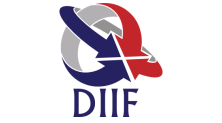Investigation of constraints faced by teaching and learning of chemistry in Nyarugenge district secondary schools: Quest for quality improvement
DOI:
https://doi.org/10.30574/gscbps.2021.16.2.0222Keywords:
Investigation, Constraints, Teaching, Learning, ChemistryAbstract
The present study investigated constraints faced by chemistry teaching and learning. It also suggested possible solutions for addressing the identified constraints. A total sample of 138 respondents including 125 students in chemistry combinations, 10 chemistry teachers and 3 directors of study were chosen purposefully to participate in this study. A qualitative research method using case study design was employed to gather necessary data. Content and thematic analysis methods were used to analyze the data. The results revealed that abstract nature of some chemistry concepts, lack of laboratory apparatus and chemicals, lack of laboratory technician to support chemistry teachers are major constraints faced by teaching and learning of chemistry. This study suggested that government and educational stakeholders should supply adequate chemicals and apparatus, chemistry teachers must use hands-on activities and video simulations to concretize chemistry concepts. Chemistry teachers should also motivate learners to enjoy chemistry to reduce negative attitude of students towards chemistry. Lastly the recruitment of laboratory attendants was also suggested as a major strategy to support chemistry teachers in preparation of chemistry practices.
Metrics
References
McGrath S. The role of education in development: an educationalist’ s response to some recent work in development economics. 2006; 1–17.
Resources H. Education and Development. 1991; 1–24.
Ngirente. Quality education is a government priority. 2018. Retrieved April 2, 2020,fromhttps://mineduc.gov.rw/index.php?id=113&tx_news_pi1%5Bnews%5D=610&tx_news_pi1%5Bcontroller%5D=News&tx_news_pi1%5Baction%5D=detail&cHash=e909780426933b721b225bd6b2ec6198.
Kibui JTMAW. Effect of Chemistry Practical on Students? Performance in Chemistry in Public Secondary Schools of Machakos and Nairobi Counties in Kenya. International Journal of Science and Research (IJSR). 2017; 6(8): 586–588.
George MJ, Kolobe M. Exploration of the potential of using a virtual laboratory for chemistry teaching at secondary school level in Lesotho. South African Journal of Chemistry. 2014; 67: 113–117.
Banda A, Mumba F, Chabalengula V. Zambian Pre-service Chemistry Teachers’ Views on Chemistry Education Goals and Challenges for Achieving Them in Schools. Science Educator, 23(1), 56–64.
Lerman ZM. The challenges for chemistry education in Africa. African Journal of Chemical Education. 2014; 4(2): 80-90.
Muhammad B. Qualitative Chemistry Education : The Role of the Teacher. 2013; 4(5): 10–14.
Dori YJ, Rodrigues S, Schanze S. How to Promote Chemistry Learning Through the use of Ict. In Teaching Chemistry – A Studybook. 2013.
Umerez J, Mossio M. Encyclopedia of Systems Biology. Encyclopedia of Systems Biology, (January). 2013.
Pia KF. Barriers in Teaching Learning Process of Mathematics at Secondary Level: A Quest for Quality Improvement. American Journal of Educational Research. 2015.
Lupton R, Hempel-Jorgensen A. The importance of teaching: Pedagogical constraints and possibilities in working-class schools. Journal of Education Policy. 2012; 27(5): 601–620.
Baran M. Identifying Barriers When Teaching Science and Mathematics In Low Economy Regions: Swansea And Hakkari As Case Studies. Journal of Baltic Science Education. 2019; 18(6).
Igwenagu C. Fundamentals of research methodology and data collection. LAP Lambert Academic Publishing. 2016.
Köller HG, Olufsen M, Stojanovska M, Petrusevski V. Practical work in chemistry and its goals and effects. Chemistry in Action. 2015; 106: 37-50. 3(7), 822–831.
Subotin I, Druta R, Dragancea V, Haritonov S. Chemical experiment and its importance in teaching chemistry. 2019; II(1): 21–26.
Robinson TJ, Fischer L, Wiley D, Hilton J. The Impact of Open Textbooks on Secondary Science Learning Outcomes. Educational Researcher. 2014; 43(7): 341–351.
Behrendt M, Franklin T. A Review of Research on School Field Trips and Their Value in Education. International Journal of Environmental and Science Education. 2014; 9(3): 235–245.
Hartley MS. Science Clubs : An Underutilised Tool for Promoting Science Communication Activities in School Science clubs : An under-utilized tool for promoting science communication activities in school . M . Shaheed Hartley Science Learning Centre for Africa Facul. 2021.
Verhoeff T. The Role of Competitions in Education. Future World: Educating for the 21st Century. December 1997; 1–10.
Stafford JT. The Importance of Educational Research in the Teaching of History. Canadian Social Studies. 2006; 40(1): 101–105.
Downloads
Published
How to Cite
Issue
Section
License

This work is licensed under a Creative Commons Attribution-NonCommercial-ShareAlike 4.0 International License.
















